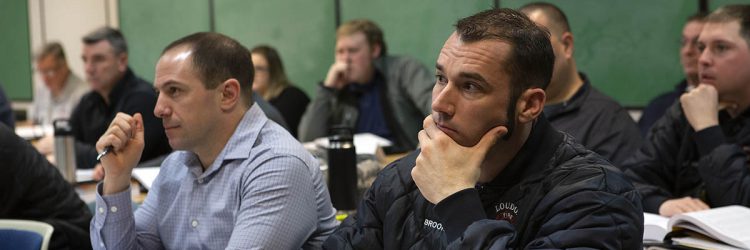Wednesday

- This event has passed.
The Cost of Code 3: An Evidence-Based Look at Lights & Siren Usage
June 7, 2023 @ 9:00 AM - 11:00 AM
Description
Lights and sirens usage has been integral to Emergency Services, serving as the status quo in most Fire and EMS responses. Supported for decades by anecdotal and unsubstantiated beliefs that quicker on-scene and transport times equal better results. Yet, recent data have shown the minimal time saved by utilizing lights and sirens improves outcomes in a very small percentage of cases. Apparatus incidents account for a high percentage of first responder injuries and fatalities across all disciplines. In most cases, L&S use puts crews, patients, and civilians at undue risk.
In this session, learn how your service can best utilize lights and sirens to improve patient outcomes and minimize risk. It will draw on the latest peer-reviewed literature and highlight McGregor EMS’s experience as part of the National EMS Quality Alliance’s (NEMSQA) nationwide Lights and Sirens Collaborative.
Learning Objectives:
1. Participants will examine apparatus incident case studies and contributing factors to collisions.
2. Describe the impact of lights and siren usage on traffic collision incidence.
3. Determine how NH E911 utilizes the Medical Priority Dispatch System (MPDS) to triage EMS responses accurately and appropriately.
4. Discuss the NEMSQA Lights & Sirens Collaborative, McGregor EMS’s participation, their lessons learned, and national best practices.
Registration
Registration is only permitted within the defined registration window. Prerequisites must be met at the time of registration. Applicants will be notified within two business days with the status of their applications. Courses where pricing is listed as "grant funded" covers course tuition only. Overtime/backfill eligible courses will be specifically noted.
Registration Opens: Wednesday March 15, 2023 @ 08:00 Registration Closes: Wednesday May 31, 2023 @ 16:00



